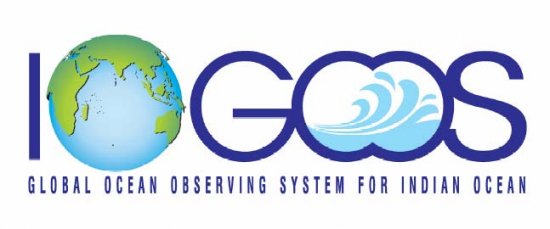ESSO - Indian National Centre for Ocean Information Services
(An Autonomous Body under the Ministry of Earth Sciences, Govt. of India)
First Conference of The Indian Ocean Global Ocean Observing System(IOGOOS)
Mauritius 4-9 November 2002
CONFERENCE STATEMENT
CONFERENCE STATEMENT
Being constantly aware of their living environment and its sensitivity to climate change, natural disaster, and human impact, the Indian Ocean countries have decided to mobilize their resources to safeguard and manage their oceans and coastal waters through a permanent ocean observing system, the Indian Ocean Global Ocean Observing System (IOGOOS).
Nineteen organizations of 10 Indian Ocean countries signed a Memorandum of Understanding to create and actively participate in a Regional Alliance for IOGOOS, signed on 5 November 2002 during the First Conference of the Indian Ocean Global Ocean Observing System, in Mauritius , 4-9 November 2002.
This Memorandum of Understanding is one of the strongest instruments of cooperation and collaboration in the context of the oceanographic development of the region.
The Government of Mauritius, through its Mauritius Oceanographic Institute, facilitated this landmark Conference, with sponsorship from ten international and national agencies and programs: Intergovernmental Oceanographic Commission, World Meteorological Organization, Department of Ocean Development of India, US Office of Naval Research, US National Oceanic and Atmospheric Administration, US National Science Foundation, Mauritius Oceanographic Institute, Climate Variability and Prediction Program, Australian Commonwealth Scientific and Industrial Research Organization, Land-Ocean Interaction in the Coastal Zone.
The oceans may be viewed as keeping countries apart, but GOOS may be viewed as bringing them together. International conventions, such as the UN Framework Convention on Climate Change and the Convention on Biodiversity, and the economic challenges and social commitments have mandated countries to implement ocean observing systems.
IOGOOS is intended to elevate the Indian Ocean from one of the least studied to one of the most studied of the world's major oceans, with a real emphasis on the link between societal and scientific issues.
The 1.5 billion people of the Indian Ocean Rim can now look forward to an increased ability to make use of the ocean observations and information produced by GOOS to improve the management of their marine environment and to use the ocean's resources sustainably.
IOGOOS will minimize the disconnect between procedures and requirements in the observation of the Indian Ocean, and enable the community to derive benefits from baseline data, routine and timely maps of ocean properties, and useful forecasts on all relevant time-scales. This will enable the detection of climate change in the marine environment with the least possible lag between changes and their detection.
The Conference proposed a number of actions and programs to give effect to the IOGOOS vision and to meet its objectives.
The basin-wide structure of temperature, salinity, and currents will be monitored by combining routine satellite data with pilot in situ measurements by ARGO floats, moored buoys, XBTs, and other instruments.
A new data-management structure will disseminate integrated data products, including ocean analyses and climate predictions to regional users, not least farmers and fishermen.
In the coastal zone, increased and coordinated study and monitoring of coastal erosion, habitat and biodiversity, and fisheries will be given priority, with the aim of forecasting change and of providing the best possible data products to the national authorities, managers and scientific communities.
The significance of the Conference lies in its explicit statement of commitment of the participating countries, agencies and institutions, and of interested nongovernmental organizations, to the generation of oceanic knowledge, data, and information and their application to the ocean- and climate-change problems of the Indian Ocean, and to the free and open access to such knowledge, data, and information, for the benefit of all the people of the Indian Ocean region and beyond.
Through the Conference, the Intergovernmental Oceanographic Commission (of UNESCO) and its UN and regional partners are now one step closer to establishing a fully operational Global Ocean Observing System in the Indian Ocean with the collaboration of the countries of the Indian Ocean region.




